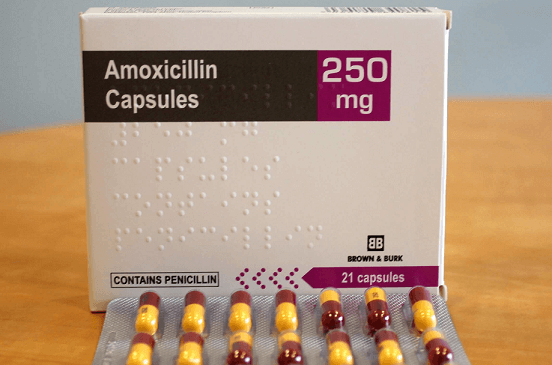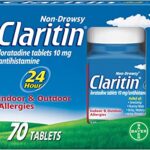Can I Take Expired Amoxicillin?

Amoxicillin (Amoxiclin) is a penicillin antibiotic that fights bacteria. Amoxicillin is used to treat many different types of infection caused by bacteria, such as tonsillitis, bronchitis, pneumonia, and infections of the ear, nose, throat, skin, or urinary tract.
Amoxiclin is also sometimes used together with another antibiotic called clarithromycin (Biaxin) to treat stomach ulcers caused by Helicobacter pylori infection. This combination is sometimes used with a stomach acid reducer called lansoprazole (Prevacid).
How should I use amoxicillin?
The recommended adult dose of amoxicillin varies widely depending on the age group and the condition being treated, but the medication is usually taken 3 times daily, once every 8 hours. Amoxicillin can be taken with or without meals. Finish all this medication, even if you have started to feel better. This will reduce the chance of the infection returning and being harder to treat.
For the liquid form of Amoxicillin, use an oral syringe to measure each dose of the liquid, as it gives a more accurate measurement than household teaspoons. Many things can affect the dose of a medication that a person needs, such as body weight, other medical conditions, and other medications. If your doctor has recommended a dose different from the ones listed here, do not change the way that you are taking the medication without consulting your doctor.
It is important to take this medication exactly as prescribed by your doctor. If you miss a dose, take it as soon as possible and continue with your regular schedule. If it is almost time for your next dose, skip the missed dose and continue with your regular dosing schedule. Do not take a double dose to make up for a missed one. If you are not sure what to do after missing a dose, contact your doctor or pharmacist for advice.
Does Amoxicillin Expire?
Yes, Amoxicillin can expire. An expiration date is a date after which a consumable product such as food or medicine should not be used because it may be spoiled, damaged, or ineffective. Expiration dates are especially important for medications because they offer the only indication about whether the product is still safe to use
In the late 1970s, the United States Food and Drug Administration (FDA) mandated that all prescription and over-the-counter (OTC) medical products contain an expiration date. Expiration dates for medicines are often marked “EXP” and are printed on the label or stamped onto the medicine bottle or box.
Can I take expired Amoxicillin?
No, expired Amoxicillin is less effective or risky due to a change in chemical composition or a decrease in strength. The expiration date is the final day that the manufacturer guarantees the full potency and safety of a medication. Drug expiration dates exist on most medication labels, including prescription, over-the-counter (OTC) and dietary (herbal) supplements. U.S. pharmaceutical manufacturers are required by law to place expiration dates on prescription products prior to marketing.
Certain expired medications are at risk of bacterial growth and sub-potent antibiotics can fail to treat infections, leading to more serious illnesses and antibiotic resistance. Once the expiration date has passed there is no guarantee that the medicine will be safe and effective. If your Amoxicillin has expired, do not use it. Even though some controversial studies indicate that some drugs can be used after expiry dates, it is better to err on the side of caution in order not to complicate your health condition or trigger unwanted adverse effects.
Common side effects of Amoxicillin include:
• nausea
• vomiting
• diarrhea
• stomach pain
• vaginal itching or discharge
• headache
• rash, and
• swollen, black, or “hairy” tongue.
Other serious side effects of Amoxil include:
• colitis caused by overgrowth of Clostridium spp in the intestines
• seizures
• hives
• jaundice, and
• rashes
Expired Amoxicillin may still interact with probenecid, blood thinners, other antibiotics, or sulfa drugs.
What to do with expired Amoxicillin?
The CDC reports that 50,000 young children end up in emergency rooms each year because they got into medicines while an adult wasn’t looking. Expired medicines are also not just a risk to the person they were prescribed for and can injure children and pets if taken by mistake. For all these reasons, proper disposal of unneeded medicines is essential.
Keep this medication in the container it came in, tightly closed, and out of reach of children. Store it at room temperature and away from excess light, heat and moisture (not in the bathroom).
It is important to keep all medication out of sight and reach of children as many containers (such as weekly pill minders and those for eye drops, creams, patches, and inhalers) are not child-resistant and young children can open them easily. To protect young children from poisoning, always lock safety caps and immediately place the medication in a safe location – one that is up and away and out of their sight and reach. http://www.upandaway.org
Unneeded medications should be disposed of in special ways to ensure that pets, children, and other people cannot consume them. However, you should not flush this medication down the toilet. Instead, the best way to dispose of your medication is through a medicine take-back program. Talk to your pharmacist or contact your local garbage/recycling department to learn about take-back programs in your community. See the FDA’s Safe Disposal of Medicines website (http://goo.gl/c4Rm4p) for more information if you do not have access to a take-back program.
A place for everything
Proper storage is one way to help make sure your medicines will remain safe and effective up to their expiration date. Be sure to read the label to see if there are specific storage instructions for your medicine. Certain medicines need to be stored in the refrigerator and others cannot be exposed to high temperatures. Improper storage – such as a damp bathroom cabinet – can contribute to decreased effectiveness in medicines that have not reached their posted expiration date. For most medicines, to help ensure the proper shelf life of your medicine, it is better to store medicine in a cool, dry place such as a dresser drawer, storage box, closet shelf, or kitchen cabinet.
When storing medicine in a kitchen cabinet, make sure that it is away from hot appliances and the sink due to changing temperatures and humidity which can affect the medicine. When storing medicine in a high traffic area like a kitchen, care should be taken to prevent access by children at risk of accidental poisoning or others who may be tempted to take for abuse/misuse.
Remember to store medicines properly and don’t use expired medicines, it’s not worth the risk!





